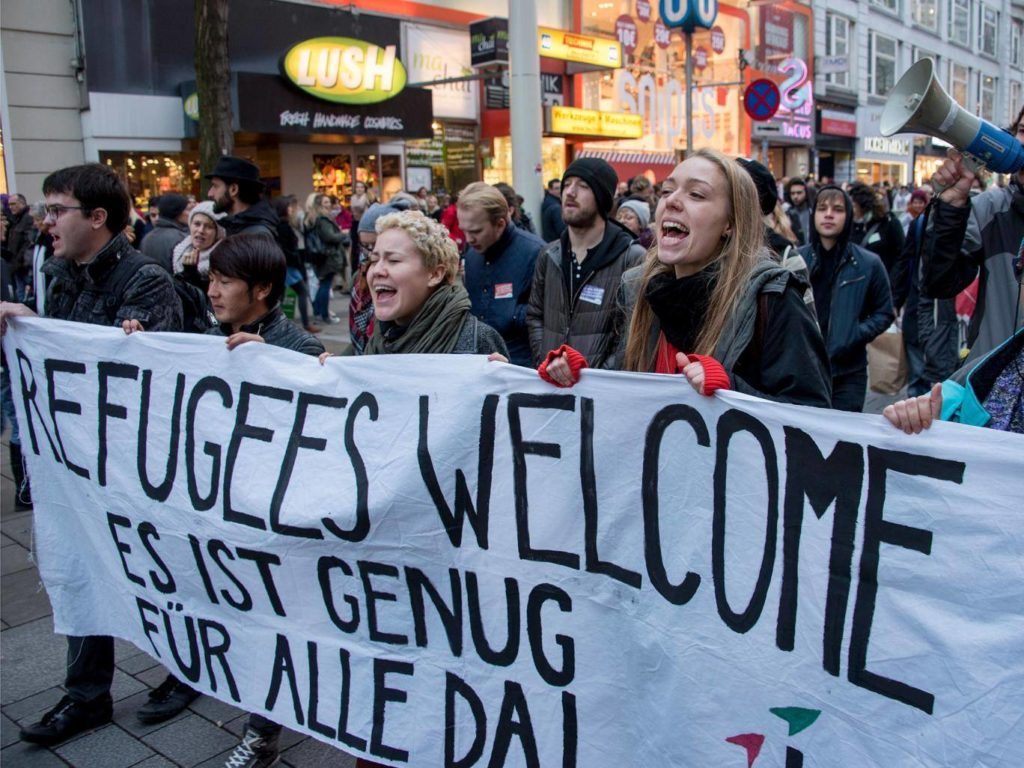Are we a welcoming Europe?
Asylum policy gets tougher

Source of the photo: The Independent
“Our values are at risk: Let’s reclaim a welcoming Europe”, says the slogan of a recent European Citizens’ Initiative. The campaign “We are a welcoming Europe!” has been presented in Brussels at the Friedrich Naumann Foundation’s event this week. An alliance of various civil society actors from all over Europe aim to make 1 million Europeans sign a petition, which will be presented to the European Commission and the European Parliament in order to change the existing European legislation. The main points are the following:
- Ban the criminalisation of solidarity in member states
- Support European citizens who want to offer safety to people fleeing persecution
- Guarantee effective access to justice to all victims of exploitation and abuse
Even if these are very moderate and reasonable claims, when the two activists from the campaign reminded the audience of the Wilkommenkultur of 2015, the scene from Don Quijote came to my mind, when the noble knight is tilting the windmills, no matter how right and justified his cause is.
Right on the same day, the feeling got even bitter when it turned out that the Austrian government has taken it very seriously to keep its word. After winning elections with the promise of tougher measures on asylum, a bill containing “the most restrictive asylum policy as possible” has been proposed to the Austrian parliament. The list of suggested measures implements in an astonishingly smart way President Trump’s famous thoughts on “building a wall at the border and making the Mexicans pay for it”. If the law is adopted by the parliament, asylum-seekers will have to pay 840 euros as a fee for their procedure. They will also be asked to handle over their mobile phones to check the localization data because the Austrian authorities want to work out in every possible way if the asylum-seekers could be sent back to another Member State, where they have actually entered the EU. For those who already got the status, it would take ten years to get the citizenship instead of the current six years.
During the peak of the refugee crisis, Austria has received 150 000 asylum applications and proceeded around 90 000. A year later, the government announced a cap over the following four years, limiting the number of asylums to the 1,5 percent of the total population, which would mean 37 500 people per year. However, the EU-Turkey deal and the border fences in Macedonia and Hungary have radically changed the landscape, and the influx of migrants has slowed down. In 2017, Austria has granted protection only for 34 000 people.
Why do they need such a tough law then? Well, Austria’s young rising star, Chancellor Sebastian Kurz has learnt very well the lesson of his Hungarian counterpart Viktor Orbán on maximizing one’s influence by calling against the unknown and miserable. As Orbán’s third landslide victory in a row has clearly shown, this is where we are heading in Europe.
This is why civil society initiatives like the #WelcomingEurope are so important, even if they seem a bit lunatic for the first sight.
